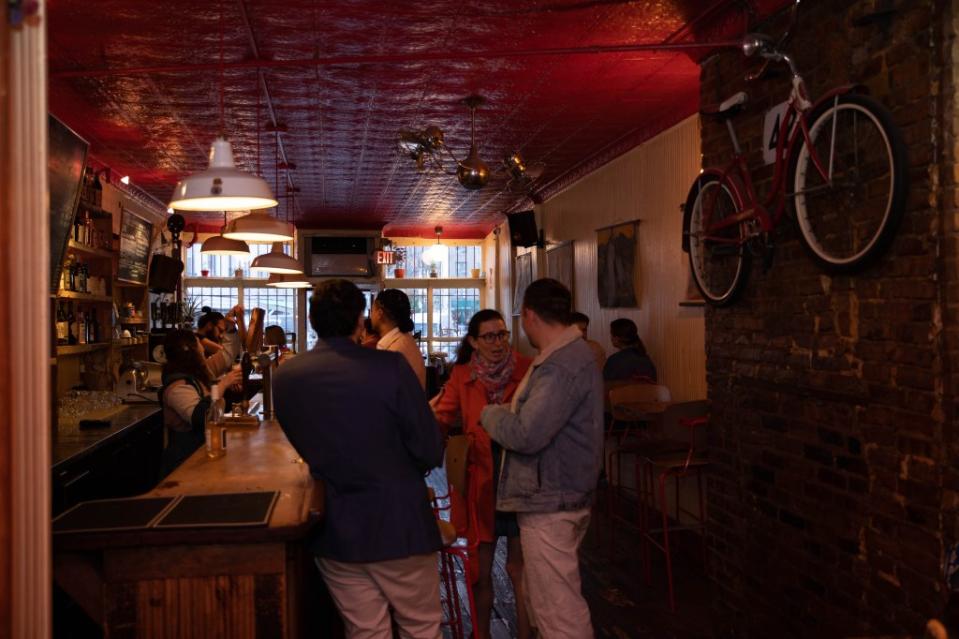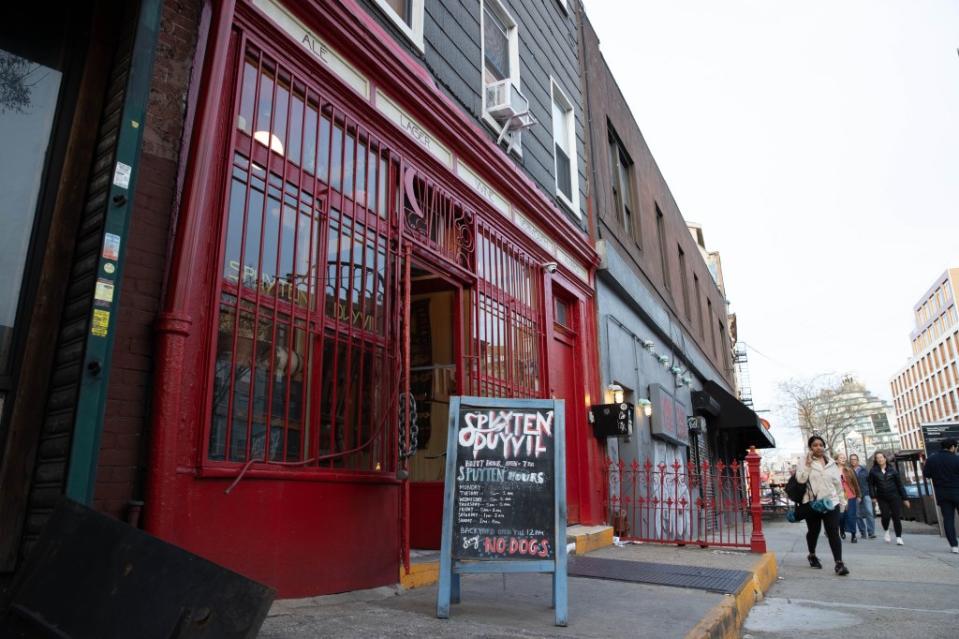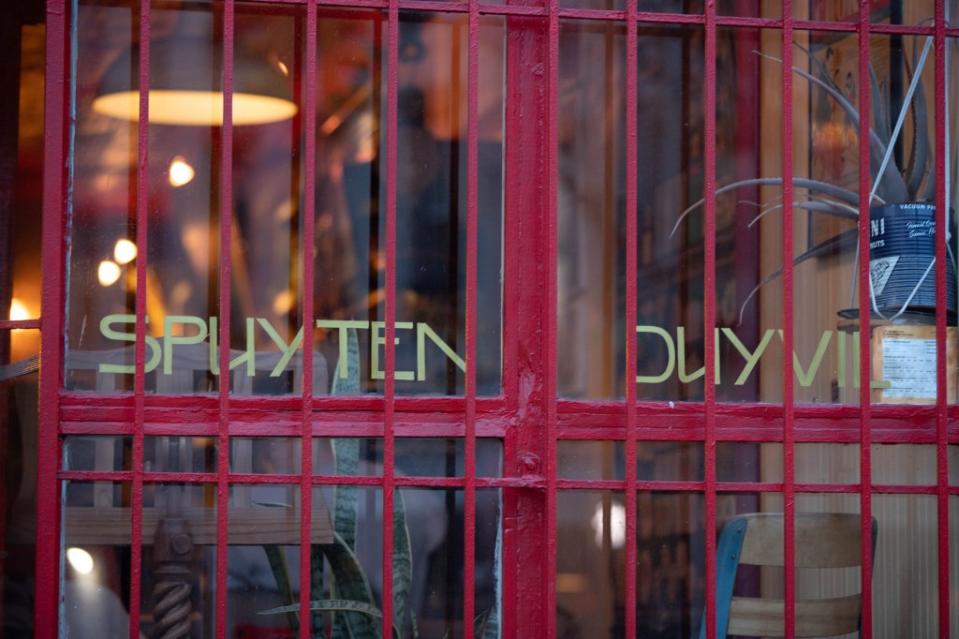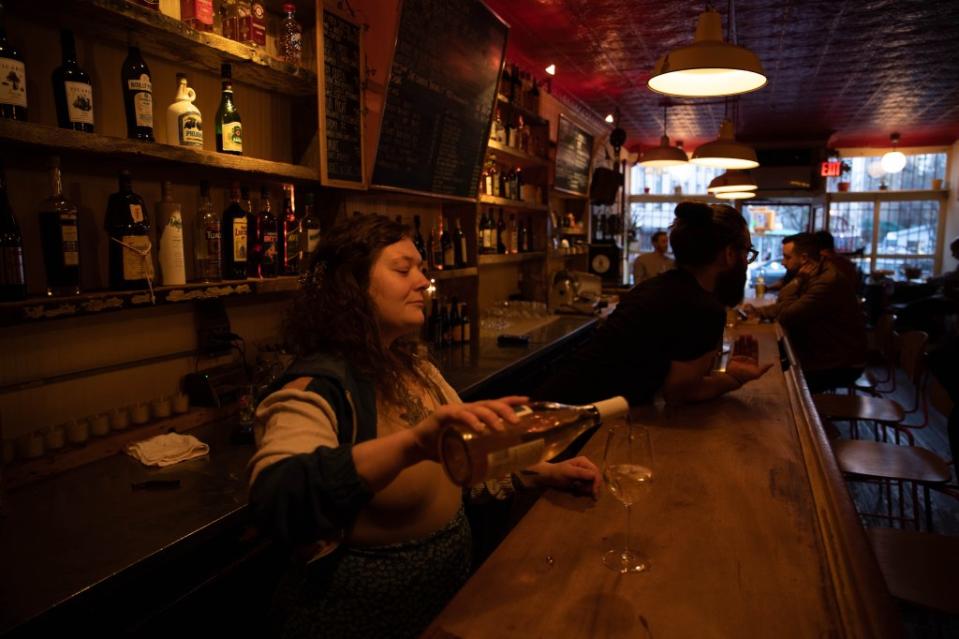Pioneering Williamsburg craft beer bar priced out of neighborhood it once helped gentrify

A Brooklyn bar credited with introducing European craft beer to the once-industrial neighborhood of Williamsburg in 2003 has been squeezed out of the now-pricey area.
Spuyten Duyvil will hold its final last call on April 21 after serving customers for more than 20 years on Metropolitan Avenue and Havemeyer Street, co-owner Joe Carroll told The Post Friday.
Carroll blamed higher rent for the closure in the aging, newly-posh neighborhood his establishment once helped gentrify.
Williamsburg has become a mecca of copycat craft beer bars on nearly every corner.
“When we opened 20 years ago craft beer was pretty underground and the beer geeks were few and far between,” Carroll said.

“When we opened there was very little American craft beer, so we carried almost exclusively European craft beer — Belgian, Dutch, English, German.
He added: “We refused to carry Duvel and Chimay. We carried really super small production stuff nobody really knew. We really championed small producers and people took to it.”
At the turn of the century, Williamsburg was known as an affordable bastion for hipsters and artists priced out of Manhattan, where a can of Pabst Blue Ribbon was considered en vogue.
“People in the neighborhood were used to a $2 can of PBR, but were able to convince them to drink better beer, even if it was a pilsner or lager,” said Carroll.

“The bodega across the street has 30 different IPAs,” Carroll noted.
Indeed, the unassuming Metro Deli bodega at the end of the block stocks Belgian-style and German wheat beer (Allagash White and Schöfferhofer, as well as Belgian blonde beer (Leffe), “handcrafted” Texan dark lager (Shiner Bock), German pilsner (Radelberger), Mexican lager (Victoria), American IPA (Bell’s Two Hearted IPA, Double Dog, Montauk Pilsner) and organic India Pale Ales (Peak).
“Back then you’d be hard-pressed to find craft beer, but now you’re hard-pressed to find a bar without craft beer,” he said of the now-monied neighborhood, where $18 cocktails and $4,500 one-bedroom apartments are the norm.
“The beer geeks don’t come to bars anymore, they line up outside the breweries,” he said.
Even while taking responsibility for the craft beer boom in the neighborhood, Carroll said that Williamsburg nightlife has suffered overall since the neighborhood gentrified.

“The people coming into Williamsburg have a lot more money, but bizarrely those aren’t the people who go out, even though they have the money to spend.
“The people who go out and spend at a bar mid-week are mostly between 21 and 25, who aren’t married, don’t have kids and don’t have very serious jobs.
“No question there are fewer young people living here once it became expensive. The younger people have been pushed out to Bushwick, Ridgewood or Crown Heights.”
The rent had gone up from $3,200 a month two decades ago to $10,000 a month today, the owner said.
Carroll, who also owns neighborhood staple restaurants St. Anselm and Fette Sau, said his rent would have been more manageable if the business had rebounded after the COVID-19 pandemic.
“The reality is I should have pulled the plug six to eight months ago. It’s been 20 and a half years. The fact it did so well for so long and funded me opening other places, honestly I would have been excited if I got ten years out of it.”

Alyssa Das, 29, from Bedford–Stuyvesant, said she will be back for one last craft beer before the closing of Spuyten Duyvil — which was first reported by Eater.
“This place is an institution. I’m sad to see it go,” Das said. “It’s a real loss for the community. It was the first place I ever went with real craft beer.”
Asked when she went for her first beer at Spuyten Duyvil, she replied, “Let’s just say when I was 21.”
Steve Marks, 55, from Brooklyn Heights, owns Persons of Interest barber shop across the street.
“When Spuyten Duyvil opened, there weren’t many beer-specific places to go,” Marks said.
“The neighborhood is changing. This area was the hot area, but new Brooklyn people have moved into the towers on the river and they’re all about GrubHub.
“I don’t know who lives here any more. I don’t think anyone knows about Spuyten any more. I loved it and spent so many amazing springs and summers in the backyard. God, it’s such a good spot, and it’s hard to account for how these places fade. You can’t rest on your laurels.”

